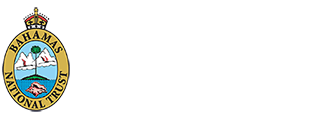The Truth of the Matter on Snakes – Bahamas
- There are 5 main groups of snakes in The Bahamas. The Bahamian boas, the brown racers, the pygmy boas, the blind snakes, and the thread snakes. There are several species and sub-species under each of these major groups.
- All Bahamian snakes pose NO threat to humans, even babies. However, fear has often convinced people that a snake is “after the baby” simply because it is crawling nearby.
- Are they Endangered? Well yes, no, and maybe. The problem with this question is that it relies on research, and specifically distribution data. Most Bahamian wildlife is not listed by the “grandfather of endangered species”, the International Union for the Conservation of Nature (IUCN) Redlist of Threatened Species, nor do we have reliable information to nominate them to the IUCN. However, we do know that The Bahamas has many endemic species (only found in The Bahamas or on a single Bahamian island). These are of particular importance to the BNT, as they are the true-true Bahamian wildlife and are part of our national identity. If The Bahamas allows them to go extinct, then they are lost from the world forever – never to return.
- The Bahamian boa constrictors can get quite large; some approaching 8 feet in total length. Despite the number of 15 foot reports, every snake that the BNT is called to remove or rescue turns out to be less than 8 feet. Again, fear has the ability to skew one’s perceptions. (BNT would love to challenge all who insist that they have a larger snake, as our staff would love to be the first to report and publish that information).
5.Unfortunately, snakes are not protected under Bahamian law. However, many would like to rectify this, but as of 2017, the only legislation that speaks to snakes is the Wildlife and Conservation Trade Act that only prevents one from importing, exporting, selling, possessing, displaying and having in their control, all native species of snake.
6. False reports of cobras and rattlesnakes have been submitted regularly to the BNT. Again, all cases have turned out to be a misidentification of a native species. Several non-poisonous snakes not native to The Bahamas have become established in The Bahamas, and new ones may reach our shores if we are not able to implement effective biosecurity measures. These include fumigating and quarantining plants being brought into the country. We believe that the fear of a dangerous snake being imported is what fuels the public fear and leads to the killing of the snakes that are discovered in homes and gardens throughout the country. This problem can be alleviated by learning our native species.
The BNT would like to see people:
- Become more knowledgeable about Bahamian wildlife as a whole, but especially native snakes.
- If you need a snake removed from inside your house, electrical box or car, post it to the Nassau’s Snake Rescue Team Facebook page and a volunteer will relocate the animal for you.
- If you think you would like to become a volunteer with the Snake Rescue Team, please join the Facebook page or email science@bnt.bs. We will be hosting workshops for snake handling every so often to increase our capacity.






